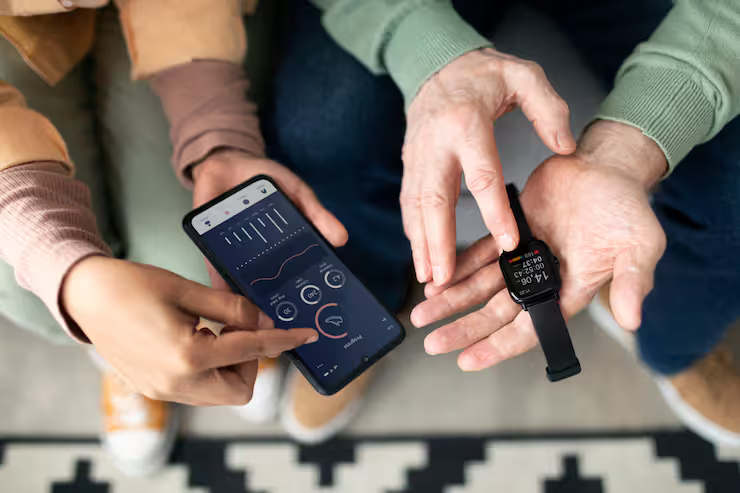Wearable Tech and Health Tracking: A Complete Guide
Portable technology refers to digital devices that you can use-like smart watches, exercise bands, ring, smart clothing and medical patches-which tracks health data using sensors and wireless connection.
Portable technology refers to digital devices that you can use—like smart watches, exercise bands, ring, smart clothing, and medical patches—which track health data using sensors and wireless connection.

Progress in small sensors, wireless communication, and smartphone integration made it possible to enter medical quality in consumer appliances.
Meaning - why does that mean something today
That affects:
-
Fitness - Users every day
-
Athlete and professional
-
Old adult at risk of autumn or heart events
-
Patients
Helps solve problems
-
Self-awareness and inspiration: Wearables encourages activity by showing stages, calories, and progress.
-
Preventive monitoring: The units can mark irregular heartbeat, abnormal oxygen levels, or stress spikes.
-
Chronic disease management: Continuous glucose monitors (CGM) track blood sugar in real time.
-
External health services: Doctors can monitor patients outside hospitals using laptop data.
Newer updates and trends
New equipment and features (2024–2025)
-
Smartwatch now includes ECG, oxygen monitoring, harvest detection, and advanced stress tracking.
-
Smart rings provide detailed sleep analysis, recycling insight, and temperature tracking.
-
Constant glucose monitors are more used for diabetes treatment.
Market growth
Globally, portable health technology market is expanded rapidly, with an estimate of approximately 17% annually between 2025-2029.
Consumers rank health and safety facilities (such as heart rate, sleep tracking, and stress monitoring) as top priorities.
Research
The study shows that users who use training tracks take several steps daily and achieve small but meaningful improvements in fitness and weight management.
Both increase physically and mental welfare by mixing wear with mobile health apps.
Laws and guidelines
-
Medical against consumer equipment: Consumer clothing (training bands, smart watches) is usually not certified medical equipment.
-
Medical class tread: (e.g., CGM, ECG monitor) should meet regulatory standards before clinical use.
Privacy consideration
Wearables collect sensitive health data, but in many countries this data is not covered by strict laws on privacy in health.
Users are encouraged to check secrecy settings, secure accounts, and keep the software up to date.
Public program
Some countries integrate wearables into national health campaigns, rewarding users for activity levels and preventive care participation.
The purpose of such programs is to reduce public health costs and encourage healthy lifestyle.
Questions to ask
Q1: Does wear really improve health?
Yes, research suggests that they increase physical activity, encourage addiction, and support weight management.
Q2: Are they sufficient for medical use?
Consumers wearables are not an option for professional diagnosis. Only units with medical class should be used for clinical purposes.
Q3: Are my personal health data safe?
Not always. Many use apps share or store data outside the safety of traditional health care. Users should review the privacy settings and secure their equipment.
Q4: Can the use of health problems help prevent?
They can notify users of irregularities (heartbeat, oxygen fall) and promote healthy habits, which can reduce the risk over time.
Q5: Who benefits most from portable technology?
Anyone can benefit, but they are especially useful for fitness-centered individuals, older adults, and patients who handle older conditions.
Final thoughts
Portable technology and health tracking have been transferred from having a fitness trend to becoming a majority of modern health services.
These devices give people more control over their health, encourage healthy lifestyle, and provide valuable data for medical processing.
